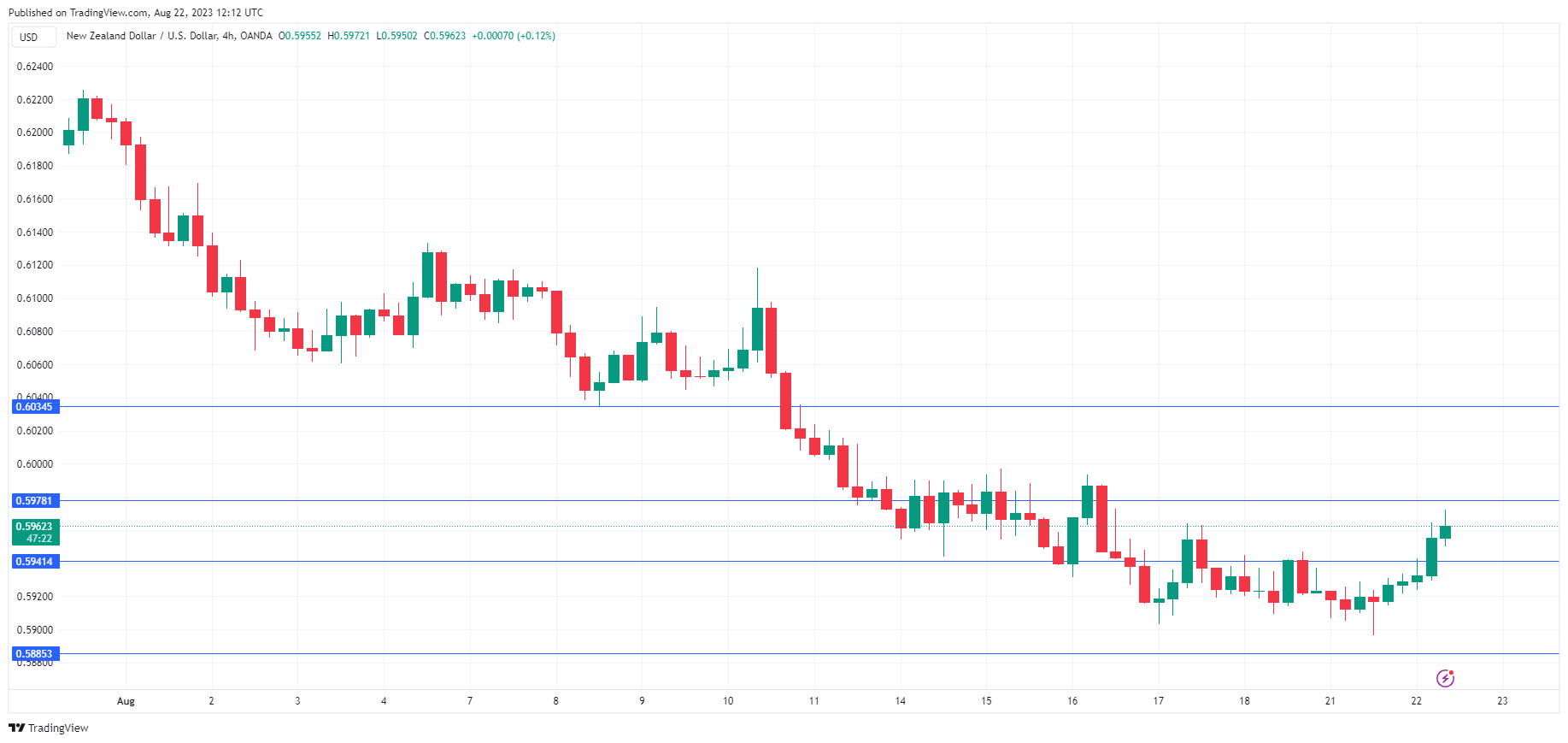- NZD/USD posts strong gains on Tuesday
- New Zealand retail sales are expected to decline by 2.6%
- NZD/USD has pushed above resistance at 0.5941 and is putting pressure on resistance at 0.5978. There is support at 0.5885 and close by at 0.5848
The New Zealand dollar has posted strong gains on Tuesday. In the European session, NZD/USD is trading at 0.5959, up 0.55%. On the data calendar, New Zealand retail sales are expected to decline by 2.6% q/q in the second quarter, compared to -1.4% in Q1.
The New Zealand dollar has gone on a dreadful slide since mid-July, falling as much as 500 basis points during that spell. The current downswing has been driven by weak global demand and jitters over China’s economy, which is showing alarming signs of deterioration.
Chinese releases have been pointing downward recently. Exports and imports have fallen, manufacturing activity is weak and the world’s second-largest economy is experiencing deflation. Last week, Evergrande, a huge Chinese property developer, filed for bankruptcy in the United States, raising fears of contagion to other parts of the economy.
It wasn’t long ago that the Chinese ‘miracle’ was being touted as an economic powerhouse on the global stage, but now the world’s second-largest economy is in deep trouble and is dragging down global growth. An interesting silver lining is that deflation in China could help lower inflation worldwide, which would be good news for the Fed, ECB and other central banks that are battling to push inflation lower.
The People’s Bank of China (PBOC) has responded in recent days to the economic slowdown with some cuts to lending rates, but surprisingly, has not trimmed the five-year loan prime rate, which has a major impact on mortgages. The PBOC’s lukewarm move to the economic crisis could mean China’s economy will continue to sputter, and that is bad news for the New Zealand dollar, as China is by far New Zealand’s largest trading partner. If Chinese releases continue to head lower, we can expect the New Zealand dollar to continue losing ground.

